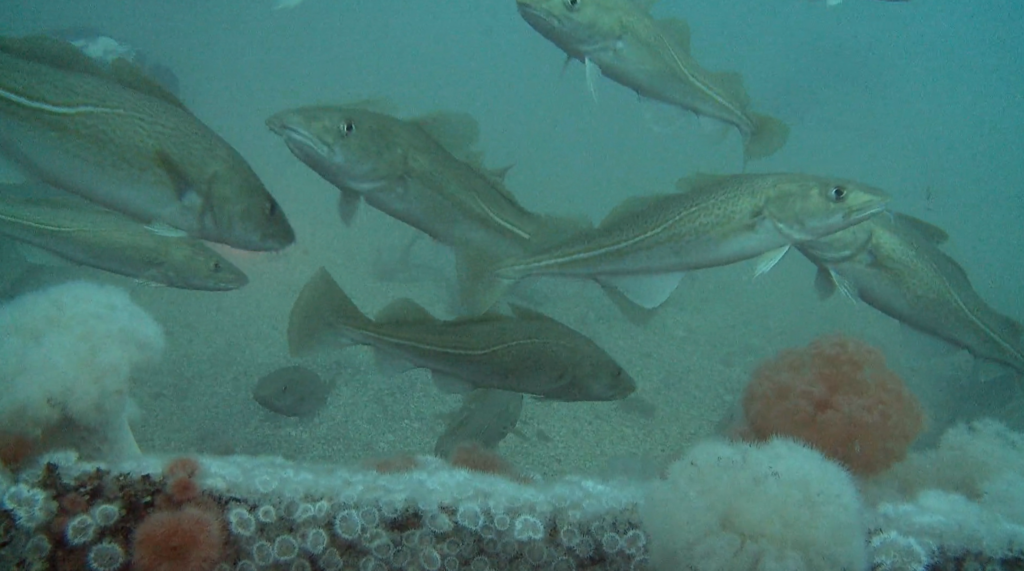DOGGER BANK PROTECTED IN BAN ON DESTRUCTIVE FISHING.
February 01, 2021 by Blue Marine Foundation
Trawling and dredging will be banned from 14,030 sq. kilometres of UK waters, an area equivalent to the size of Northern Ireland, the Government has announced.
The Marine Management Organisation (MMO) announced a consultation on byelaws prohibiting destructive fishing in four offshore marine protected areas (MPAs), the largest by far being the 12, 331 sq. kilometres of the Dogger Bank in the heart of the North Sea.
Blue Marine Foundation (BLUE) has been campaigning for the closure of the Dogger Bank to bottom-trawling since the release of a landmark report in September 2020, carried out with Client Earth, MCS and WWF. Another recent report by MCS found that bottom-trawling, a method of fishing which destroys the seabed, was happening in 98 per cent of the UK’s offshore MPAs.
George Eustice, the Environment Secretary, said: “Now that we have left the Common Fisheries Policy, we are able to deliver on our commitment to achieve a healthy, thriving and sustainable marine environment.
“The UK has already established an impressive ‘Blue Belt’ covering 38 per cent of our waters and our Fisheries Act has provided us with additional powers to go further to protect our seas around England. This proposal to introduce byelaws to safeguard four of our precious offshore Marine Protected Areas shows how we are putting these powers into action.”
Tom McCormack, Chief Executive Officer of MMO, said: “This consultation is a big step forward in agreeing measures that will help protect and revive important marine habitats, vital to the unique and vibrant marine life that live within them.
“We are ambitious for England’s seas and want to hear as many views as possible in order to create benefits for people and the economy, while protecting our precious marine environment for future generations.”
 Atlantic cod on the Dogger Bank. Credit: Stichting Natuurbeelden
Atlantic cod on the Dogger Bank. Credit: Stichting NatuurbeeldenCharles Clover, Executive Director of BLUE, which argued that trawling and dredging on the Dogger Bank were incompatible with the Habitats Regulations, said: “We applaud this bold first step towards protecting our offshore marine protected areas, starting with the Dogger Bank, a huge and ecologically important area which has been hammered by trawls and dredges for too long.
“The government in England has conceded that damaging fishing has been going on unlawfully in so-called protected areas and that sets a precedent for all 73 offshore MPAs, for the devolved administrations and for the EU, which have the same law. I am sure the EU and member states will be watching events here closely.
“East Coast fishermen have been calling for the protection of the offshore MPAs and now they will want MPAs off Norfolk, Suffolk, Essex and Kent protected in the same way so they can begin bringing benefits for fisheries.”
Professor Callum Roberts of Exeter University and BLUE Trustee said: “What is left on the Dogger Bank today is a ghost of what was once there. New protection could lead to the beginnings of a recovery of a megafauna that used to thrive on the bank in astonishing densities: halibut, flapper skate, blue skate, longnose skate, angel sharks, turbot, brill, wolffish, conger eels, cod. Many of these species have declined so far that they are on the endangered species list but so far marine conservation efforts in the UK have completely neglected doing anything to bring about their recovery. Meaningful protection of the Dogger Bank would be a significant step to restoring our once bountiful seas.
 A starfish on the Dogger Bank. Credit Stichting Natuurbeelden
A starfish on the Dogger Bank. Credit Stichting Natuurbeelden“Just to give an idea of what proper protection could bring back: in the 1830s small sailing vessels con the Dogger could catch a ton of halibut per day. Today, the entire fishing fleet catches less than two tonnes a year, signalling the near complete loss of a huge species (they grew to two metres long and a hundred plus kilos) that were crucial to the ecosystems of the past. The fact that a few are still caught shows that protection could kick start their recovery.”
Reaction from the fishing industry was mixed. The National Federation of Fishermen’s Organisations – a body in which UK and Dutch industrial fishing interests are heavily represented – said the bans were “a shocking development” and “a brutal approach” which would displace fishing activity from its customary areas.
Paul Lines, chairman of the Lowestoft Fish Market Alliance which represents inshore fishermen in East Anglia, said: “Now we’ll start to see sustainability start to happen in British waters. If nothing is given a chance, there will be nothing.”
The MMO is seeking views on proposed byelaws for all four of the following four offshore marine protected areas:
- Dogger Bank Special Area of Conservation (East of England)
- Inner Dowsing, Race Bank and North Ridge Special Area of Conservation (The Wash approaches, off the Lincolnshire and North Norfolk coasts)
- South Dorset Marine Conservation Zone (South West – Dorset)
- The Canyons Marine Conservation Zone (South West – Offshore)
The MMO says it will announce its plan for the management of non-licensable activities, including anchoring for recreational vessels, for the Studland Bay Marine Conservation Zone on the Dorset coast later this month.
 Dead mans fingers cover a wreck on the Dogger Bank. Credit: Stichting Natuurbeelden
Dead mans fingers cover a wreck on the Dogger Bank. Credit: Stichting Natuurbeelden
.jpeg)